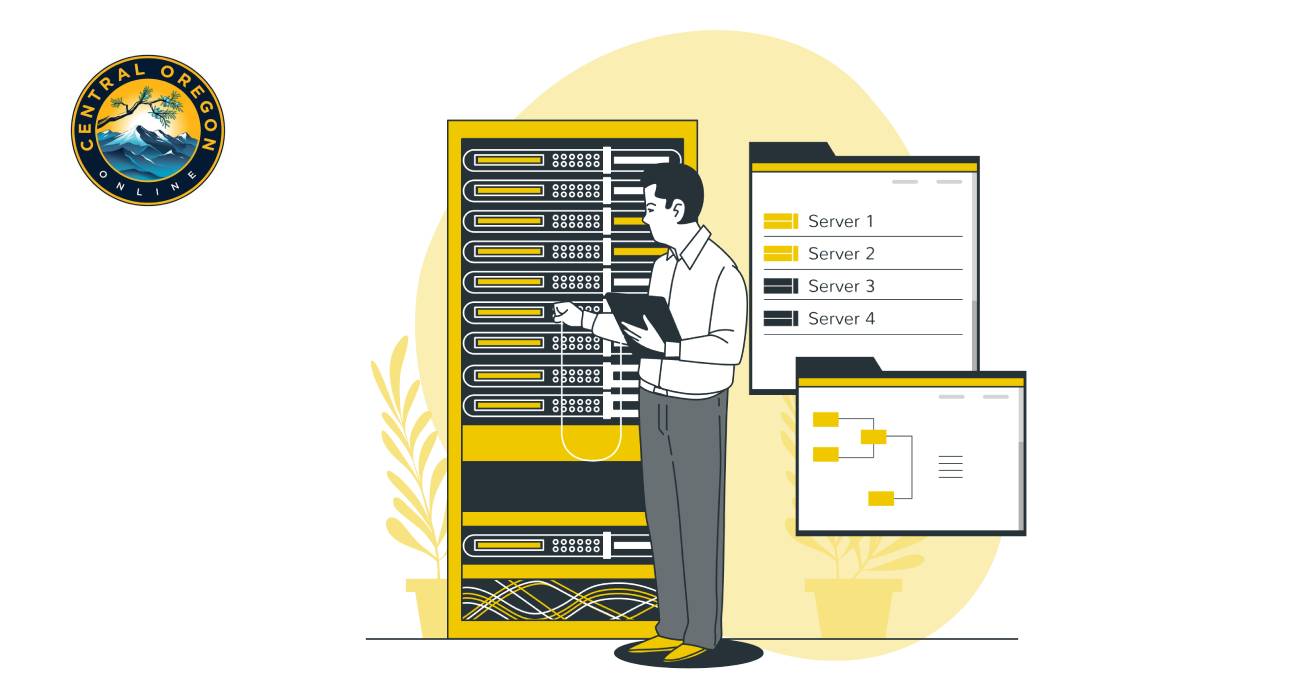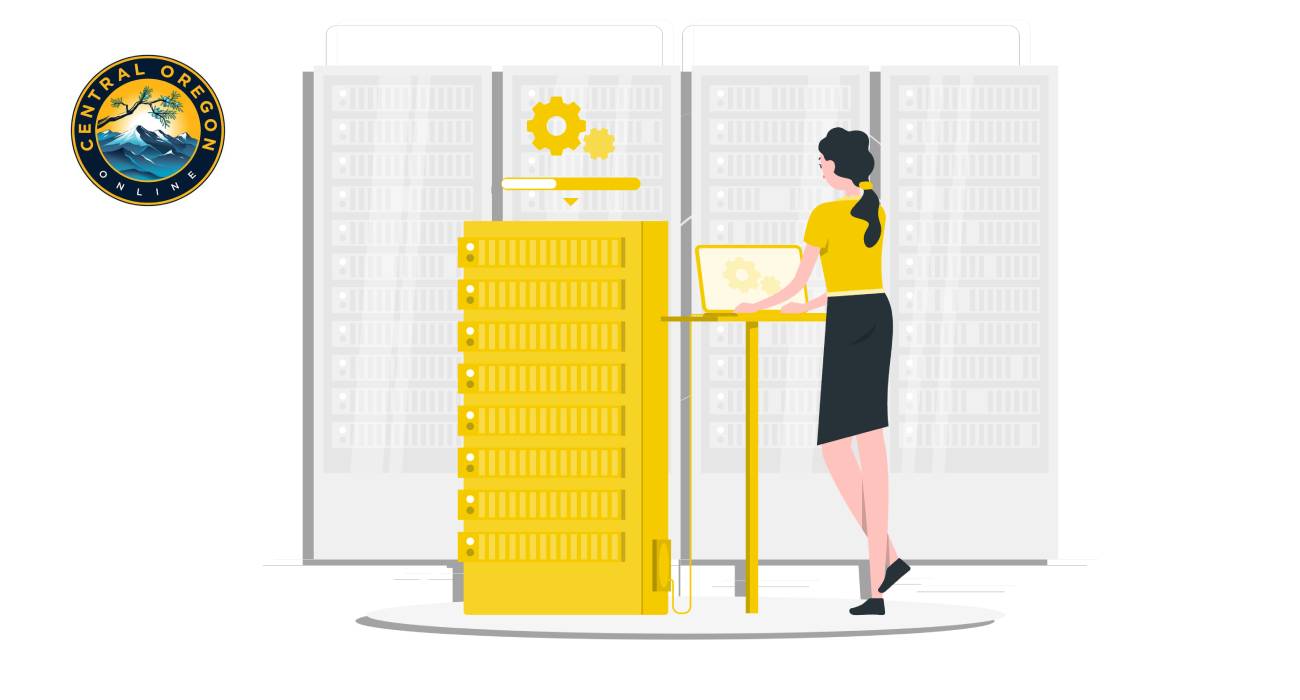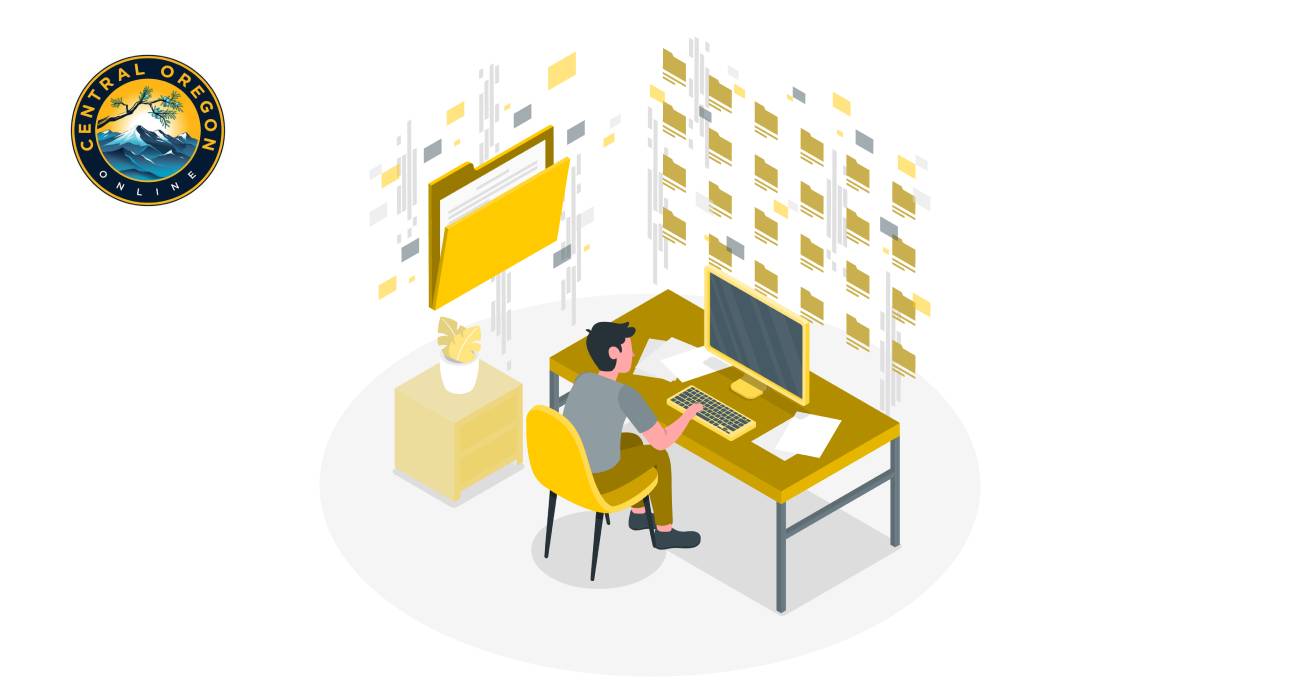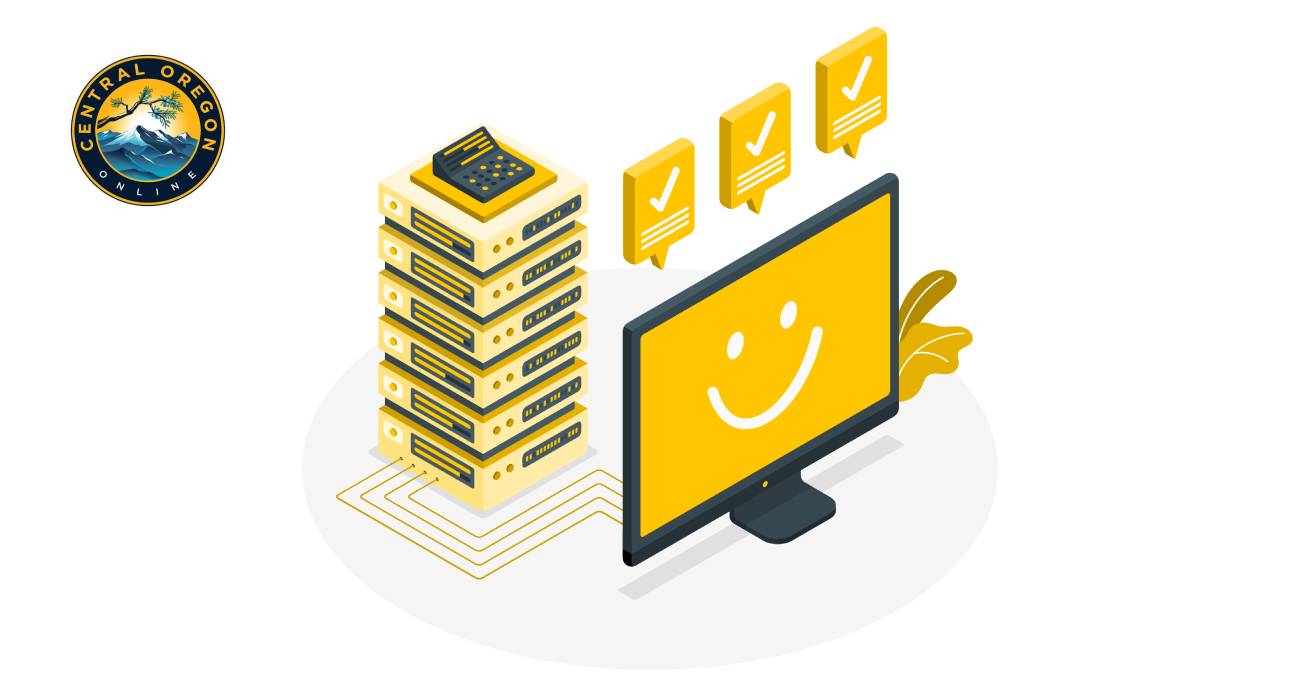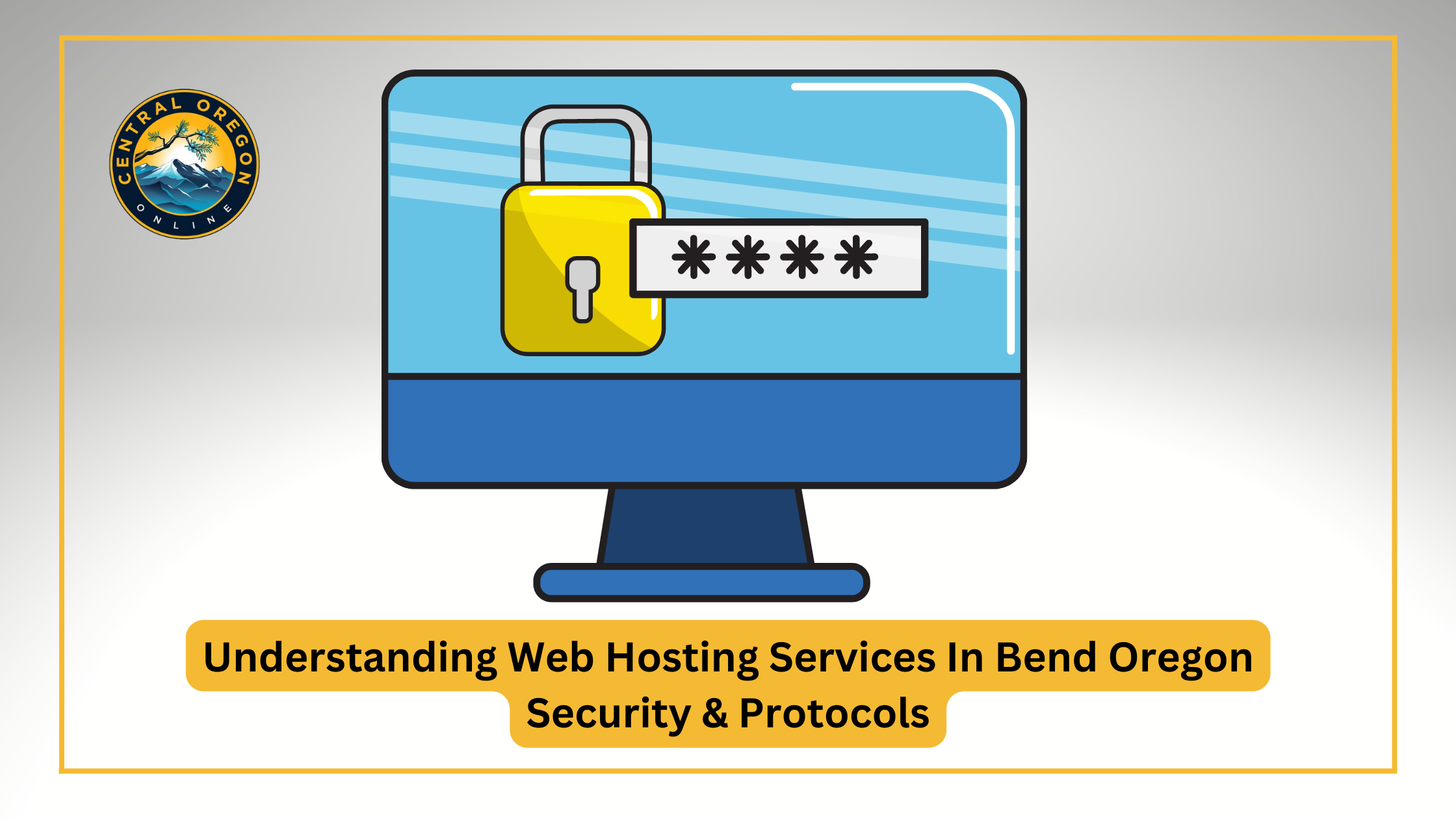
Understanding Web Hosting Services In Bend Oregon Security & Protocols
If you care about the safety of your website, business, and customers, you should look for a web host that does, too. We’ve laid out some of the most important things to look for in a secure web hosting services in bend oregon, as well as some measures you can take to safeguard your website, below.
When it comes to web hosting, what exactly does “secure” mean?
When choosing a web host, safety should be a top priority. However, no aspect of any hosting platform guarantees that your data is any more secure than any other.
Instead, the overall safety of a web host depends on a constellation of separate factors.
While it’s good to know that a web host is employing some measures to protect customer data, that alone doesn’t tell you how secure they are in comparison to others.
To keep your website safe, you and the company that hosts it should think about a number of security options.
Which Safety Features Should a Web Host Provide?
Security Hardware
When you pay for web hosting services, the primary benefit you receive is storage space on a server where your website’s files can be kept. Data stored on servers can only be trusted to be safe if the servers themselves are safe from outside threats.
Only the people who work for the web hosting company and are in charge of installing and maintaining the hardware should be able to get into the data centers where the servers are physically located. Intruders can’t get to the servers in person because of security cameras, motion detectors, locked cabinet racks, and other best practices.
A number of natural and anthropogenic disasters, including blackouts, fires, floods, and others, pose a threat to server rooms. Hardware racks should be securely fastened to the floor, ceiling, or walls, and the room itself should be water- and fire-proofed. Backup generators should also be present. There is an additional level of security afforded to businesses by their use of off-site data backups. It’s important to think about the safety of a company’s data centers, so factors like earthquake risk, hurricane territory, and tornado alley should be eliminated from the equation.
Get in touch with your web host and inquire about:
- Where are the servers located?
- What safeguards are in place to protect their physical servers?
- How are servers safeguarded against electrical surges and natural disasters?
Monitoring the network
To prevent attacks and breaches from becoming more severe, constant threat monitoring is essential. If you hire a web host to manage your server, you can rest assured that both the hardware and the traffic to and from your site will be monitored in order to foil any potential attacks.
Please contact your web host and ask the following questions:
- How do we know if there is a security breach in a network?
- How do clients find out about security incidents?
Secure access
Web hosts should limit virtual access to servers in the same way they restrict physical access. If you don’t pay attention to who can see what on a server, sensitive information can easily get out.
Secure Sockets Shell (SSH) or a similar network protocol should be used by web hosts for user authentication. Secure Shell (SSH) is a network protocol that allows for the safe and secure remote administration of computer systems and software by means of strong password authentication, public key authentication, and encrypted data communications. SSH access availability is typically advertised by most web hosts.
If someone tries to eavesdrop on your data as it travels over the Internet, Secure Sockets Layer (SSL) encryption will render the information unreadable. Since SSL encryption is crucial for the safety of websites, especially online stores, many hosting providers now throw one in for free. If you do not already have one, you should definitely invest in an SSL certificate. Websites without SSL certificates are increasingly being labeled as “insecure” by search engines, which can have a negative effect on traffic.
By sorting and monitoring HTTP traffic and defending web applications from attacks, web application firewalls (WAF) add an extra layer of security to the web. Find a web host that has a WAF feature, whether it’s built into the host or available in the cloud.
Inquire with your website host:
- Do they employ SSH or a similar protocol for their networks?
- Does it have an SSL certificate by default?
- Do they provide WAFs at the host or cloud level?
Back-ups
You should always have a backup of your website in case it ever crashes or is hacked and you lose all of your data and have to start over.
Web hosts are responsible for providing two distinct types of backups. First, in the event that one server site is compromised, there must be a physical back-up on a different server site. In case your website ever goes down, you’ll be glad you kept a copy of all your files in case you need to roll back to an earlier version.
Inquire with your website host:
- Does your hosting package provide for regular backups?
- How often do backups happen if that’s the case?
- How often do you perform backups, and how many different versions of your site can you keep?
Safeguarding against Distributed Denial-of-Service Attacks and Providing Content Delivery Network Support
DDoS attacks, or distributed denial-of-service attacks, are unfortunately a common tactic used by cybercriminals. The goal of a distributed denial of service (DDoS) attack is to prevent legitimate users from accessing a website by flooding it with so much traffic that it crashes.
Given the complexity of mitigating distributed denial of service (DDoS) attacks, prevention is preferable. Most web hosts accomplish this with the aid of a Content Distribution Network (CDN), which is a collection of servers located in various locations and used to store cached content for rapid delivery to site visitors. Using this kind of caching makes it harder for DDoS attackers to disrupt service and saves on hosting bandwidth.
Numerous content delivery networks (CDNs) exist, and many hosts now include access to one or more of these networks as part of their DDoS protection offerings to their clientele. If your web host doesn’t offer CDN support, it is possible (and recommended) to implement one yourself.
Inquire with your website host:
- Does it help Content Delivery Networks?
- What kind of defenses do they have against DDoS attacks?
- Do customers receive warnings about DDoS attacks?
What precautions are taken, and what steps are taken to recover from a denial-of-service attack?
The Detection and Elimination of Malware
Malicious software, programs, or codes are one of the most well-known threats to website safety. Malware is any type of malicious software, program, or code that an attacker uses to get into your device and steal, damage, encrypt, or spy on your data or online activities.
Malware protection is essential. Malware can destroy your website, steal sensitive information about your customers, and spread to other websites without your knowledge, all of which can damage your business and cause you to lose valuable customers.
Inquire with your website host:
- Is virus and malware detection done mechanically?
- What measures do they take to eliminate viruses and other malicious software?
——-
Are you searching for a reliable, secure, and cost-efficient web hosting provider in Bend Oregon? If so, centraloregon.online is the ideal option.
We’re a locally-owned and operated business that has been providing quality hosting services to residents of Central Oregon since 2019. Our focus is on providing affordable solutions to small businesses and individuals that are looking to expand their online presence. We provide every client with personalized service and attention to detail while they are working with us.
To learn more about our services or sign up for one today, visit [our website](https://centraloregon.online/).
CATEGORY:Blog
